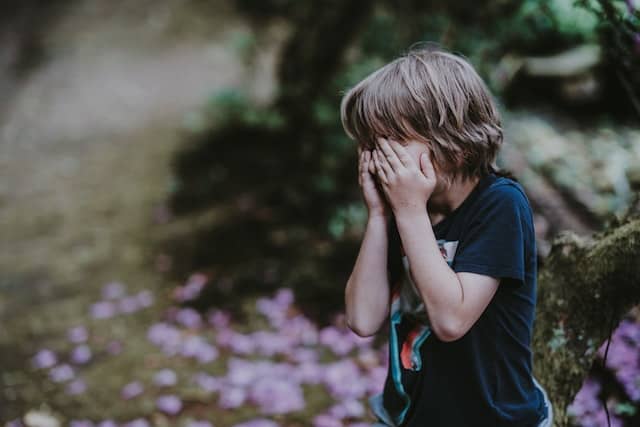William Golding’s iconic novel “Lord of the Flies” explores the savagery and primal instincts of a group of young boys stranded on an uninhabited island. The book explores the darker aspects of human nature as the boys’ attempts at building a functioning society break down, leading to chaos and violence. In one particularly haunting scene, the boys brutally kill a fellow castaway named Simon. But what did Ralph say after killing Simon?
The aftermath of this act of brutality weighs heavily on the protagonist, Ralph, who is grappling with the devastating realization of what he has done. In Chapter 10, Ralph struggles with grief and guilt, finally uttering the haunting words, “I want to go home. Oh God, I want to go home.” This statement reveals the depth of Ralph’s despair and serves as a reminder of the consequences of unchecked savagery. In this article, we will take a closer look at Ralph’s statement and what it reveals about his character and the novel’s broader themes.
What did Ralph say after killing Simon? (Complete Answer)
In the Lord of the Flies, a group of young boys are stranded on an uninhabited island and must survive without adult supervision. As time passes, the boys’ attempts at building a functioning society break down, leading to chaos and violence. In one particularly harrowing scene, the boys brutally kill a fellow castaway named Simon. The aftermath of this act of brutality weighs heavily on the protagonist, Ralph, who is grappling with the devastating realization of what he has done.
In Chapter 10, Ralph wakes up the morning after Simon’s murder, and the weight of his actions begins to sink in. As he struggles to process his grief, Ralph utters the haunting words, “I want to go home. Oh God, I want to go home.” This statement reveals the depth of Ralph’s despair and serves as a reminder of the consequences of unchecked savagery.
Ralph understands that he has committed an unspeakable act and is struggling to come to terms with the gravity of his actions. By saying that he wants to go home, Ralph is expressing a desire to escape from the nightmare that the island has become. He longs for the familiar comforts of home and the safety of civilization.
Ralph’s “Oh God” quote underscores his grief and suggests that he questions his faith in light of this atrocity. This statement also serves as a contrast to the earlier portrayal of Ralph as a confident and capable leader. Throughout the novel, Ralph tries to maintain a sense of order and morality. However, he now faces the harsh reality of what humans can do when left to their own devices.
Ralph’s statement reveals the broader theme of the novel, which is the dangers of unchecked savagery and the importance of civilization and societal order. The boys’ behavior quickly descends into barbarism when stripped of the trappings of civilization. Ralph’s longing for home represents a desire for the safety and structure that comes with living in a society with rules and laws.
What does Ralph wept for the end of innocence mean?
When Ralph wept for the end of innocence in Lord of the Flies, it meant that he realized that his experiences on the island made him lose his innocence. He had seen firsthand the evil that lurks within all human beings, including himself and his peers. Ralph wept because he knew he could never return to being the innocent child he once was. His time on the island had taught him some harsh lessons about life and human nature that he could never forget.
What is ironic about the ending of Lord of the Flies?
The ending of Lord of the Flies is ironic because although the naval officer saves Ralph and provides a way for the boys to return home, the rescue itself is not a happy moment. Instead, it is a moment of bitter realization that the boys have descended into savagery and violence, causing them to be incapable of acting like civilized human beings. Furthermore, the naval officer’s reaction to the boys’ behavior is also ironic. He is part of the same adult world that the boys mock and despise throughout the novel, yet he appears shocked and almost disgusted by their actions. This contrast emphasizes the irony that the boys’ supposed innocence is lost, and their return to civilization is not a happy one.
Conclusion
In conclusion, Ralph’s statement, “I want to go home. Oh God, I want to go home,” after the murder of Simon in Chapter 10 of “Lord of the Flies,” is a powerful representation of the weight of his grief and the devastating consequences of unchecked savagery. It serves as a reminder of the importance of civilization and the dangers of giving in to primal instincts. Ralph’s struggle to come to terms with his actions highlights the fragility of human morality and the need for constant vigilance in maintaining societal order.
